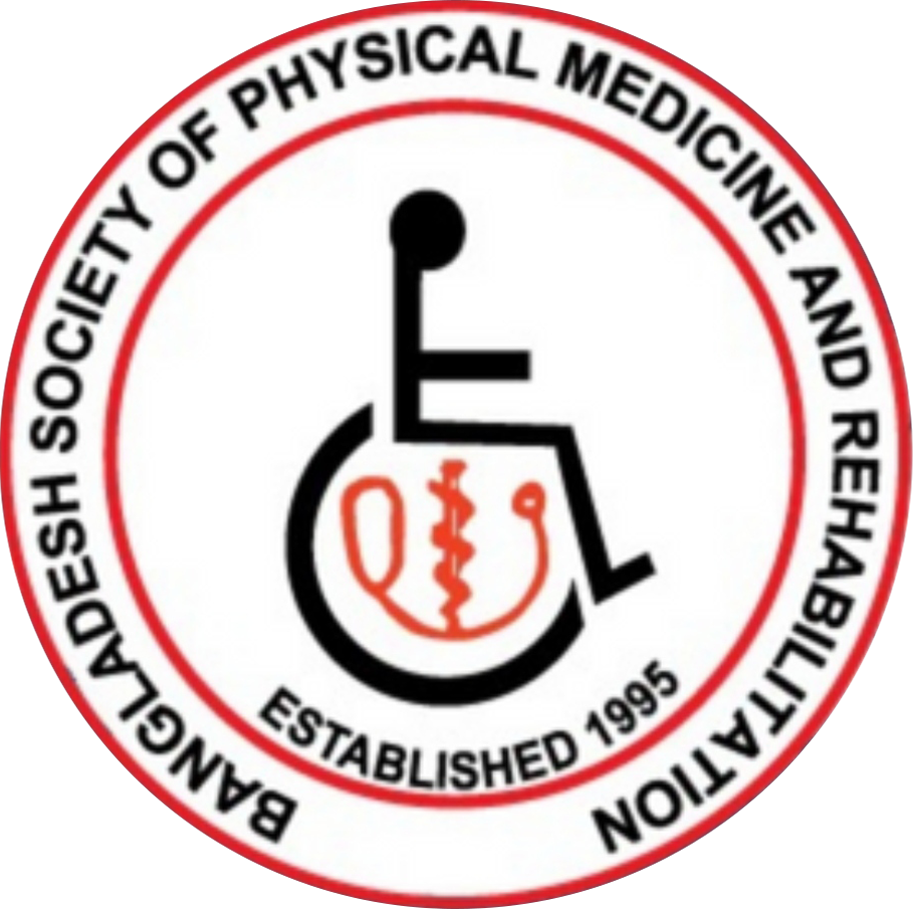Published Researches
Explore our collection of verified and published researches.

Md. Atiquzzaman
Assistant Professor
Bangla Version of the Boston Carpal Tunnel Questionnaire: Translation, Cross-Cultural Adaptation, Validation and Reliability Assessment
Background: Self-reported instruments are outstanding predictor of symptom severity and functional status, hence represent a patient’s view and capture the full extent of disability. The Boston Carpal Tunnel Questionnaire (BCTQ) is a patient reported self-assessment tool for the peoples with Carpal Tunnel Syndrome (CTS). Objective: Our intension was to develop a reliable, validated and culturally adapted Bangla version of original BCTQ (B-BCTQ). Materials and Methods: The B-BCTQ was succeeded following a structured process that included translation, verification, compromise assessment, reverse translation, feedback, and final correction. B-BCTQ reliability and validity were conducted in 48 CTS patients. The reliability was evaluated by performing internal consistency and test–retest analyses. Its validity was assessed by comparing the B-BCTQ with the Physical functioning subscale (PF-10) of Short Form health Survey (SF-36) scale. Results: Cronbach’s alpha was 0.89 for symptom severity scale (SSS) and 0.86 for functional status scale (FSS). Also, Intra-class Correlation Coefficients (ICCs) were calculated as 0.86 for SSS and 0.91 for FSS. Pearson correlation (0.80 for SSS and 0.83 for FSS) analysis demonstrated that the B-BCTQ score was significantly correlated with the PF-10 of SF-36. All of the items were statistically significant (P<0.001). Conclusion: The B-BCTQ is successfully adapted. The study findings support the previous English version indicating its validity and reliability.
View Details
Dr. Md. Israt Hasan
Assistant Professor
Bangla Version of the Boston Carpal Tunnel Questionnaire: Translation, Cross-Cultural Adaptation, Validation and Reliability Assessment
Background: Self-reported instruments are outstanding predictor of symptom severity and functional status, hence represent a patient’s view and capture the full extent of disability. The Boston Carpal Tunnel Questionnaire (BCTQ) is a patient reported self-assessment tool for the peoples with Carpal Tunnel Syndrome (CTS). Objective: Our intension was to develop a reliable, validated and culturally adapted Bangla version of original BCTQ (B-BCTQ). Materials and Methods: The B-BCTQ was succeeded following a structured process that included translation, verification, compromise assessment, reverse translation, feedback, and final correction. B-BCTQ reliability and validity were conducted in 48 CTS patients. The reliability was evaluated by performing internal consistency and test–retest analyses. Its validity was assessed by comparing the B-BCTQ with the Physical functioning subscale (PF-10) of Short Form health Survey (SF-36) scale. Results: Cronbach’s alpha was 0.89 for symptom severity scale (SSS) and 0.86 for functional status scale (FSS). Also, Intra-class Correlation Coefficients (ICCs) were calculated as 0.86 for SSS and 0.91 for FSS. Pearson correlation (0.80 for SSS and 0.83 for FSS) analysis demonstrated that the B-BCTQ score was significantly correlated with the PF-10 of SF-36. All of the items were statistically significant (P<0.001). Conclusion: The B-BCTQ is successfully adapted. The study findings support the previous English version indicating its validity and reliability.
View Details
Dr. Md. Israt Hasan
Assistant Professor
Bangla Version of the Boston Carpal Tunnel Questionnaire: Translation, Cross-Cultural Adaptation, Validation and Reliability Assessment.
Background: Self-reported instruments are outstanding predictor of symptom severity and functional status, hence represent a patient’s view and capture the full extent of disability. The Boston Carpal Tunnel Questionnaire (BCTQ) is a patient reported self-assessment tool for the peoples with Carpal Tunnel Syndrome (CTS). Objective: Our intension was to develop a reliable, validated and culturally adapted Bangla version of original BCTQ (B-BCTQ). Materials and Methods: The B-BCTQ was succeeded following a structured process that included translation, verification, compromise assessment, reverse translation, feedback, and final correction. B-BCTQ reliability and validity were conducted in 48 CTS patients. The reliability was evaluated by performing internal consistency and test–retest analyses. Its validity was assessed by comparing the B-BCTQ with the Physical functioning subscale (PF-10) of Short Form health Survey (SF-36) scale. Results: Cronbach’s alpha was 0.89 for symptom severity scale (SSS) and 0.86 for functional status scale (FSS). Also, Intra-class Correlation Coefficients (ICCs) were calculated as 0.86 for SSS and 0.91 for FSS. Pearson correlation (0.80 for SSS and 0.83 for FSS) analysis demonstrated that the B-BCTQ score was significantly correlated with the PF-10 of SF-36. All of the items were statistically significant (P<0.001). Conclusion: The B-BCTQ is successfully adapted. The study findings support the previous English version indicating its validity and reliability.
View Details